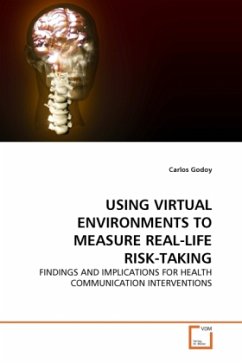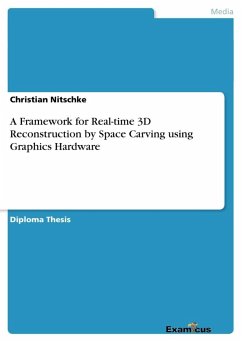Would virtual behaviors be predictive of past and future behaviors? Does the relationship between an individual's virtual and subsequent real life behavior depend on active interactive decision-making or is mere passive observation of another's choices enough to predict subsequent real-life behavior? Would virtual decisions (and interventions tied to them) predict behavior 3 months subsequently above and beyond traditional cognitive variables (e.g., intent, self-efficacy)? These questions can be addressed by taking a SOLVE (Socially Optimized Learning in Virtual Environments) approach. This book examines and answers these provocative questions.
Bitte wählen Sie Ihr Anliegen aus.
Rechnungen
Retourenschein anfordern
Bestellstatus
Storno








